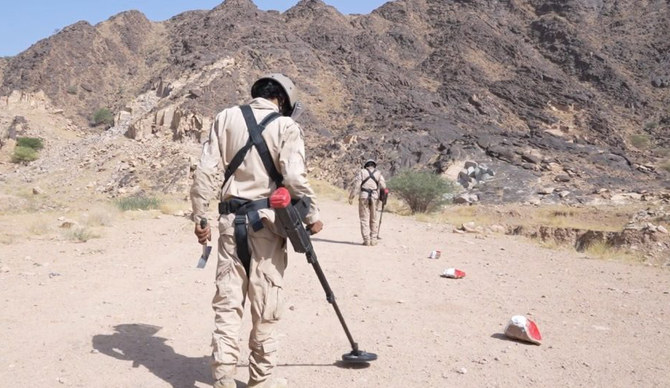RIYADH: Saudi Arabia’s Project Masam cleared 1,254 mines in Yemen — which had been planted by the Houthi militia — between June 1 to 7, according to a recent report.
Overseen by the Kingdom’s aid agency KSrelief, the project’s specialist teams destroyed 1,232 pieces of unexploded ordnance, 18 anti-tank mines, three improvised explosive devices, and one anti-personnel mine.
The explosives, which were planted indiscriminately by the Houthis across Yemen, posed a threat to civilians, including children, women and the elderly.
The demining operations took place in Marib, Aden, Jouf, Shabwa, Taiz, Hodeidah, Lahij, Sanaa, Al-Bayda, Al-Dhale and Saada.
A total of 446,112 mines have been cleared since the start of the initiative in 2018, according to Ousama Al-Gosaibi, the project’s managing director.
The initiative trains local demining engineers and provides them with modern equipment. It also offers support to Yemenis injured by the devices.
About 5 million people have been forced to flee their homes since the beginning of the conflict in Yemen, many of them displaced by the presence of land mines, according to the Project Masam website.
Masam teams are tasked with clearing villages, roads and schools to facilitate the safe movement of civilians and the delivery of humanitarian aid.
































